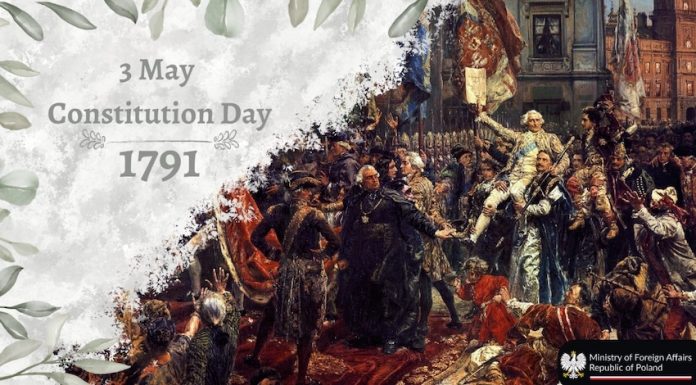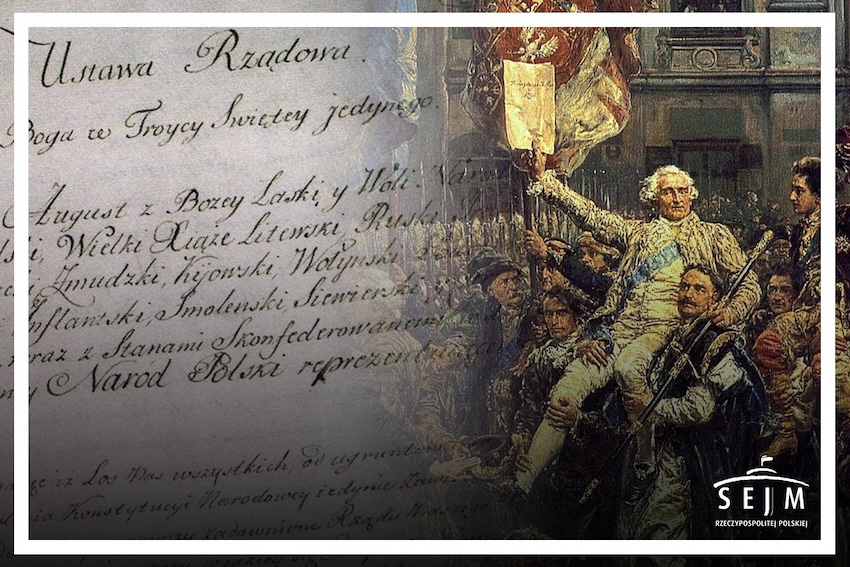Edited by Anna Popper
On the occasion of Polish Constitution Day, observed annually on 3 May, the Embassy of the Republic of Poland together with the Polish Institute in Hungary, organised a commemorative event featuring a jazz concert.
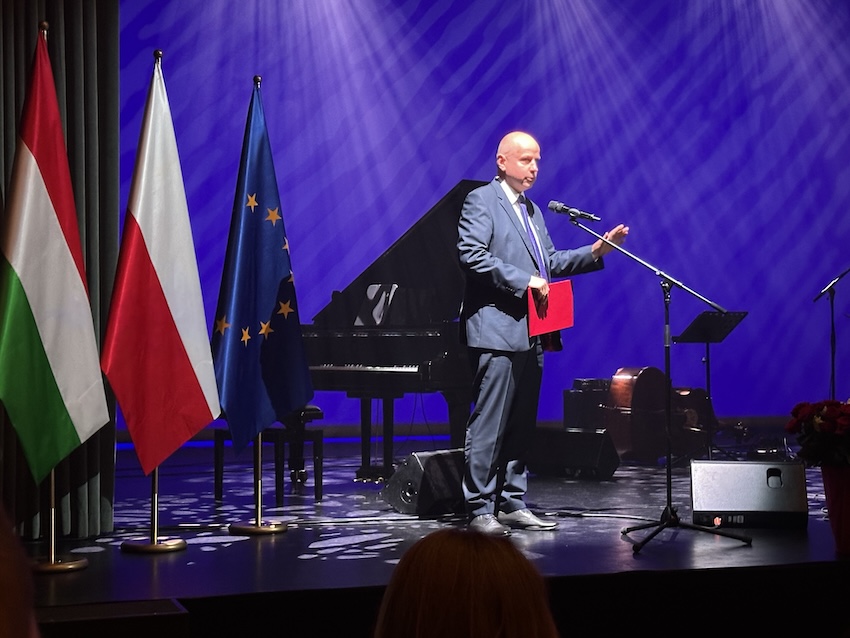
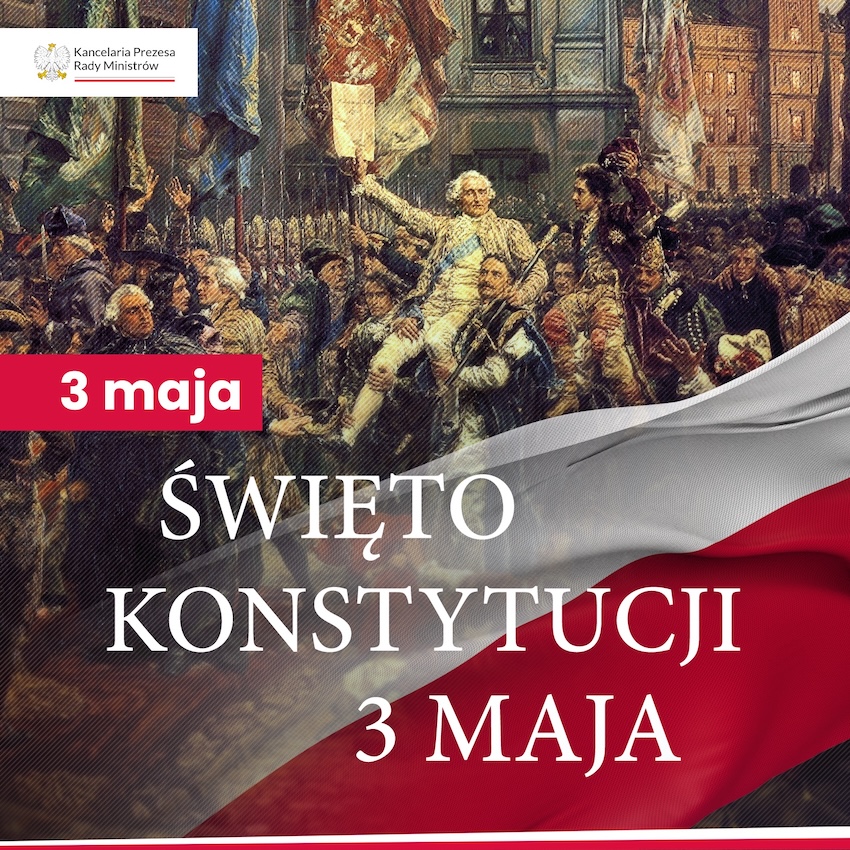
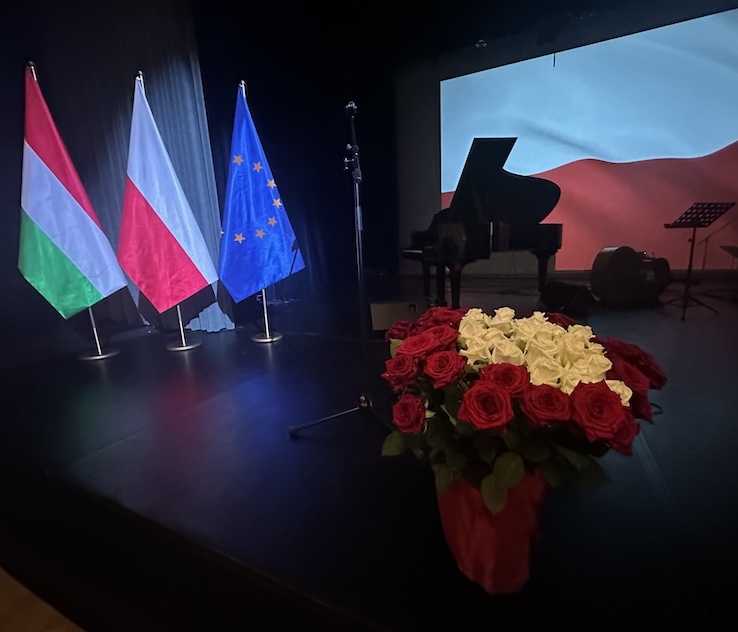
The Constitution of 3 May 1791 stands as one of the most important symbols of Polish independence. Yet it is more than just a symbol – it is a remarkable historical document, a foundational legal text, and a ground-breaking event that was hailed across Europe as a revolution of its time. As the first written national constitution in Europe and the second in the world after that of the United States, it was celebrated with dignity and joy in Budapest, reflecting both historical reverence and a vibrant contemporary cultural spirit.
A milestone in the history of political thought, the Constitution of 3 May 1791 embodied the ideals of freedom, civic responsibility, and enlightened governance. Enacted by the Great Sejm of the Polish–Lithuanian Commonwealth, it introduced a constitutional monarchy, established the separation of powers, expanded civil rights, and guaranteed religious tolerance.
Beyond its legal innovations, it served as a moral declaration – an expression of Poland’s commitment to freedom, justice, and the common good. Its significance was recognized in 2015 with the award of the European Heritage Label by the European Commission.
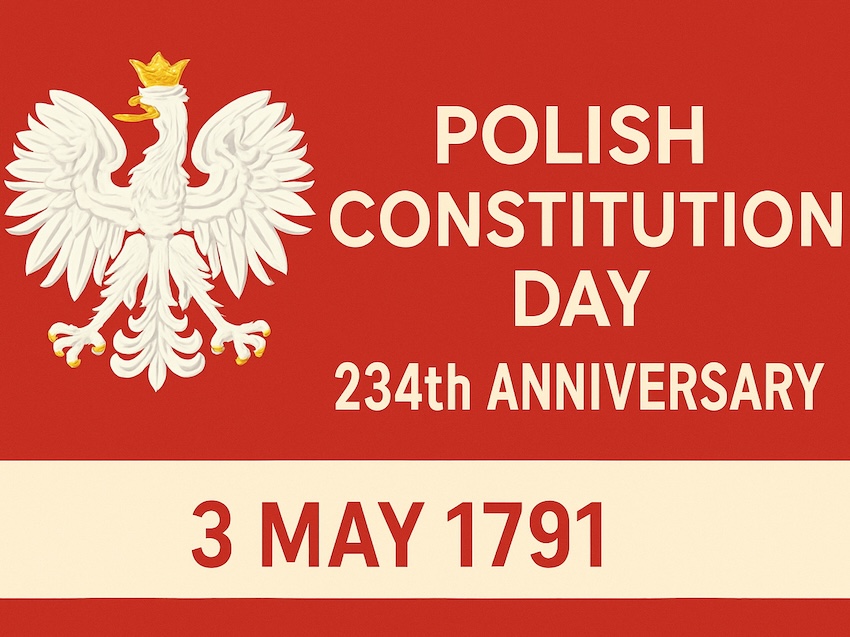
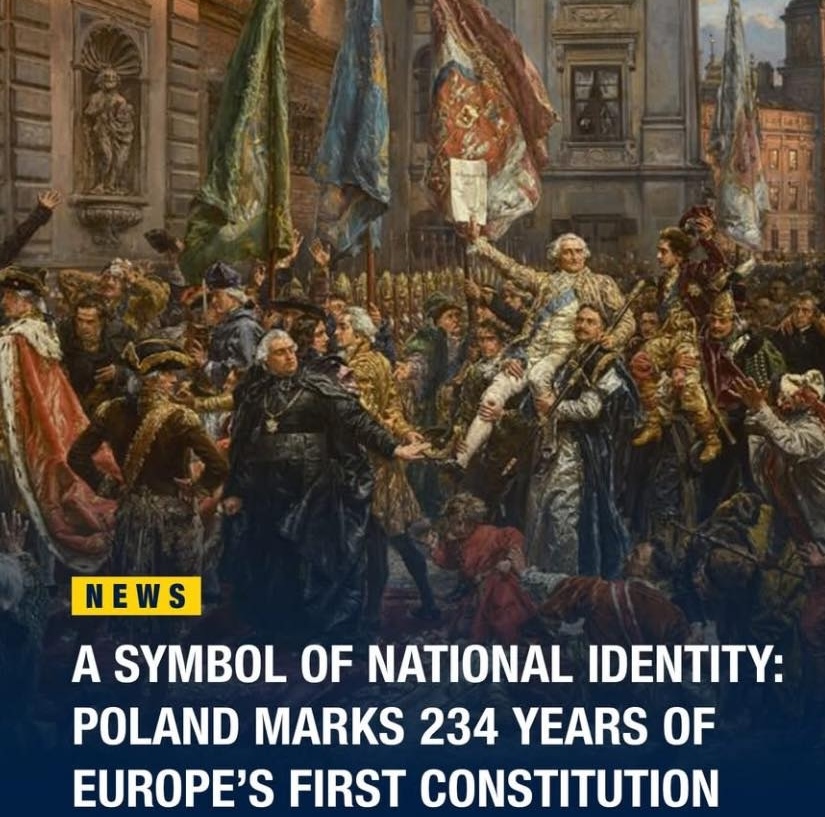
The event marking the 234th anniversary of the 3 May Constitution, held at the Heritage House, was hosted by Mr. Jacek Śladewski, Chargé d’Affaires of the Polish Embassy, and attended by distinguished guests, representatives of the Hungarian government, members of the diplomatic corps, and the Polish community. The evening began with the national anthems of Poland, Hungary, and the European Union.
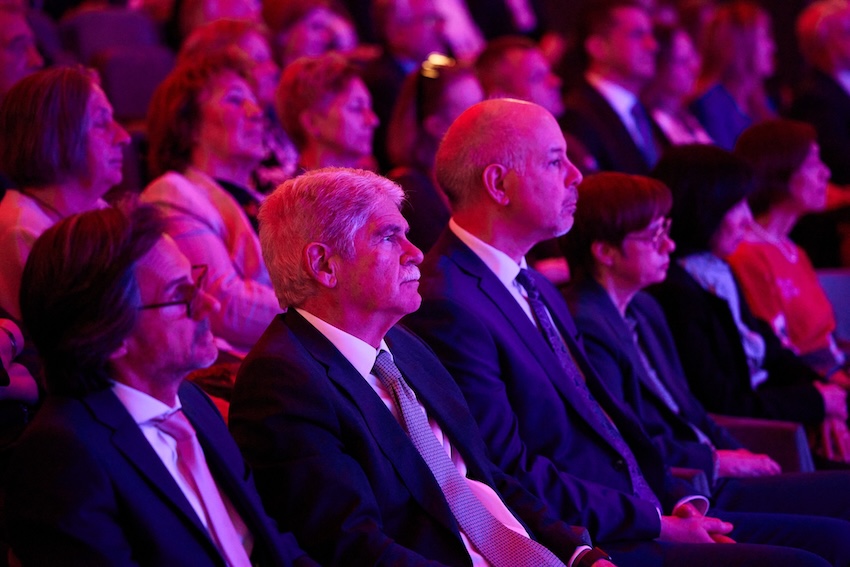
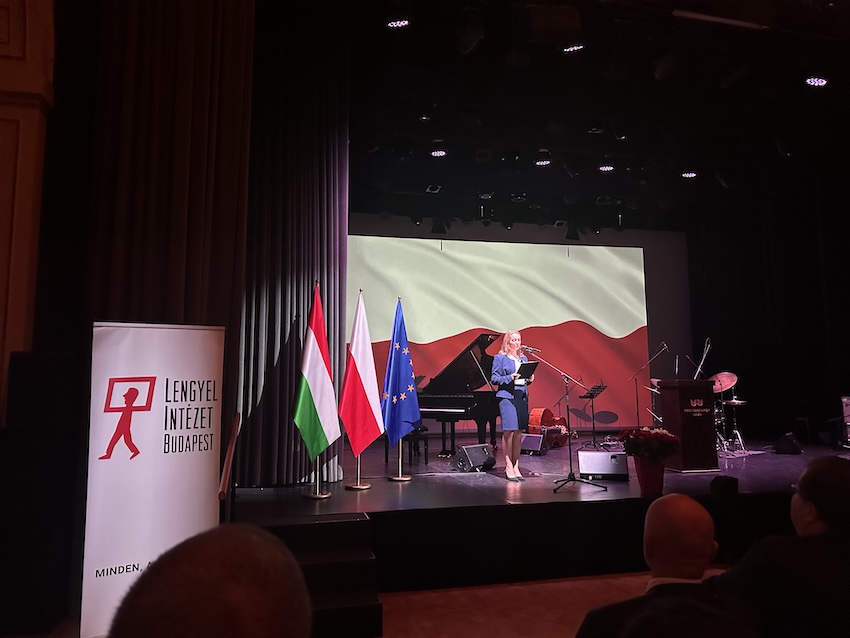
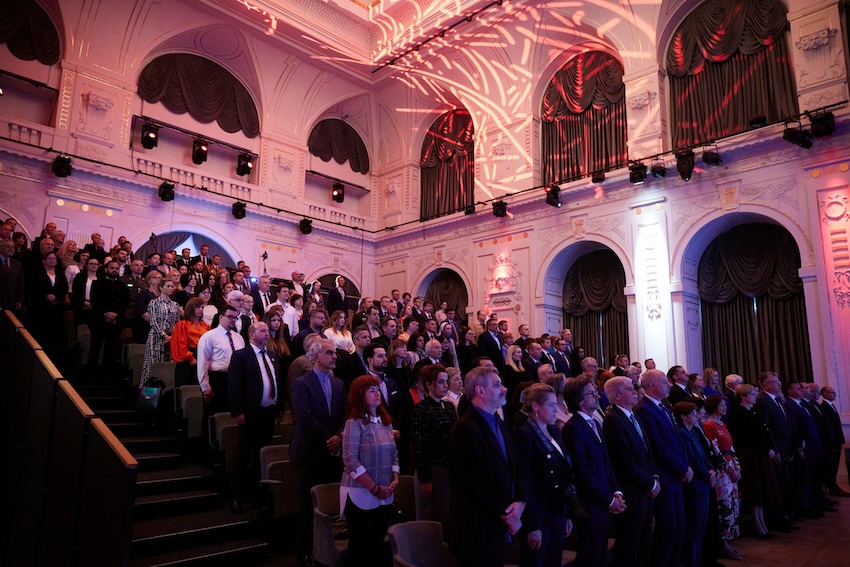
In his address, Mr. Śladewski welcomed the audience, expressed appreciation for their notable presence, and reflected on the historical importance of the Constitution:

“We have gathered here on the occasion of the Polish National Day – the anniversary of the Constitution adopted in Warsaw in 1791. This – the first constitution in Europe and the second in the world – was a modern and progressive legal act aimed at modernizing Poland and protecting its sovereignty and existence. Despite the fact that the Constitution was in force only for several months, it still remains a cornerstone of the Polish republican tradition, and we as a nation are proud of that.
One of the most important statements of the Constitution was that all public power has its roots in the will of the nation. It also introduced into the Polish legal system the division of powers between the legislative, executive, and judiciary branches. It underlined the role of the working class in towns and villages, and guaranteed freedom of religion on the territory of the Polish state,” the Chargé d’Affaires stated.
This great achievement in the history of Poland has had a lasting impact on Polish national identity.
A special moment of the celebration was the presentation of naturalization documents to Tamás István Biernacki, who had the pleasure and honour of receiving his Polish citizenship on this festive occasion.
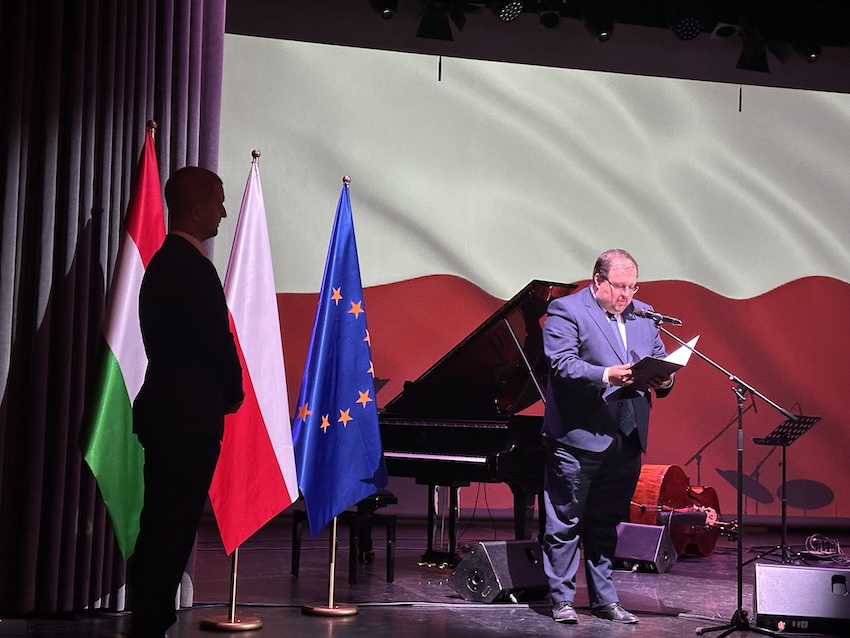
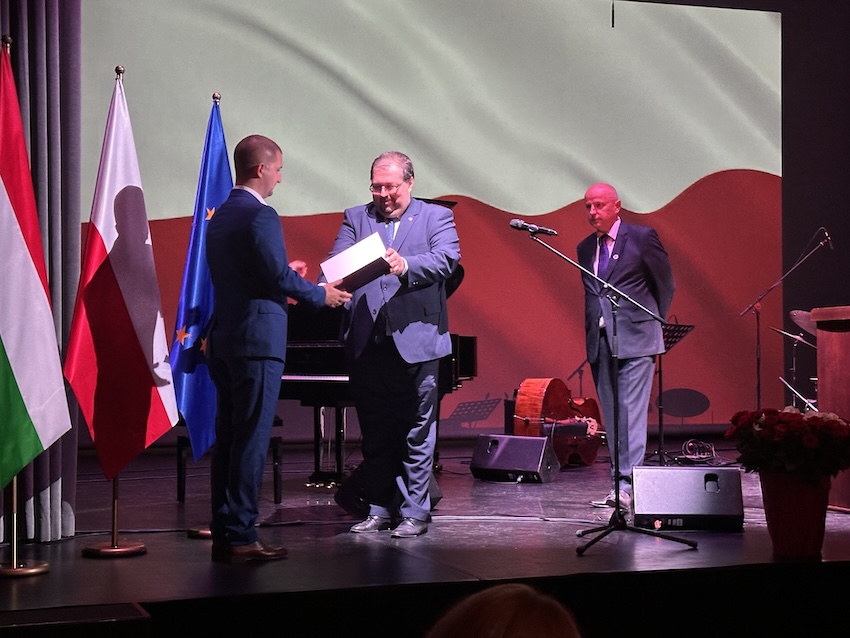

Piotr Schmidt Quintet in Concert: A Tribute to Komeda
The highlight of the evening was a jazz concert by the acclaimed Piotr Schmidt Quintet, who delivered a deeply emotional and refined interpretation of works from the legendary album My Sweet European Homeland (Meine süsse europäische Heimat) by Krzysztof Komeda – the iconic Polish jazz composer, pianist, and pioneer of modern Polish jazz. The album’s scores, originally released in Germany, had been lost since the 1960s. A few years ago, they were rediscovered in the archives of the National Library in Warsaw, and re-arranged and brought back to life by contemporary musicians.
The Piotr Schmidt Quintet – featuring Piotr Schmidt (trumpet), Gabriel Niedziela (guitar), Paweł Tomaszewski (piano), Jakub Olejnik (double bass), and Grzegorz Mastowski (drums) – performed not only Komeda’s masterworks but also Schmidt’s own compositions, creating a rich and immersive musical experience.


Jazz has been very popular in Poland, particularly since the mid-20th century. In times of political constraint, it was more than just a musical genre. It became a symbol of independence, nonconformity, cultural cosmopolitanism, and openness to Western influences in Polish society.
Krzysztof Komeda (1931–1969), a trained medical doctor who adopted his stage name for musical pursuits, remains a seminal figure in European jazz. Internationally, he is best known for his film scores, especially his collaborations with Roman Polanski. His haunting lullaby from Rosemary’s Baby (1968) endures as one of the most iconic pieces of film music. Komeda’s signature fusion of Slavic lyricism, cool jazz, and avant-garde continues to inspire generations of musicians.
Dr. Piotr Schmidt, born in 1985, is a leading figure in contemporary Polish jazz. A trumpeter, producer, bandleader, and publisher, he holds a doctorate in musical arts from the Academy of Music in Katowice and currently serves as an assistant professor at the University of Applied Sciences in Nysa. Since March 2023, he has also led the Silesian Jazz Club Music Association – the oldest active jazz association in Poland, operating continuously since 1956. With 17 albums to his name, Dr. Schmidt carries the innovative spirit of Komeda into the 21st century.
The Quintet’s performance resonated deeply with the audience, capturing the melancholy and hopefulness that so often characterize the Polish spirit.
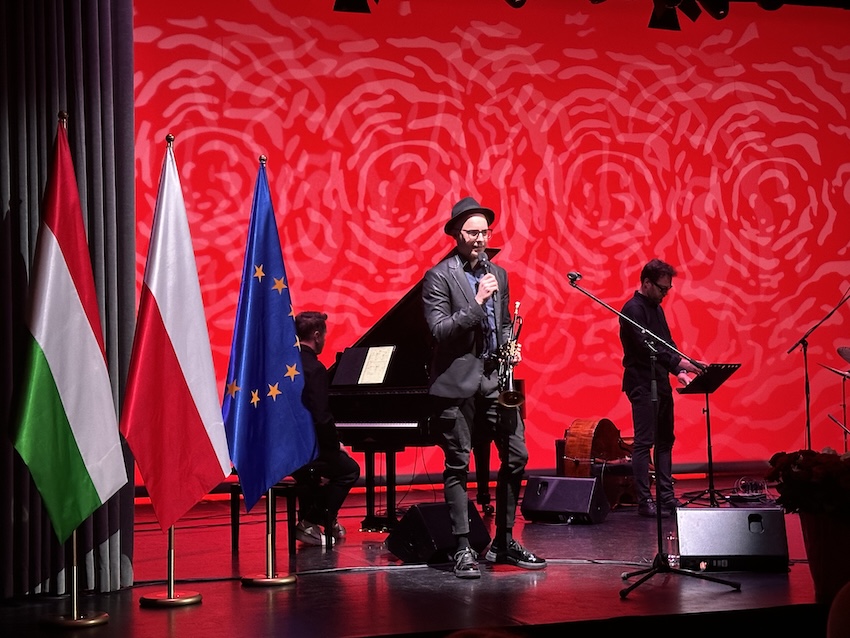
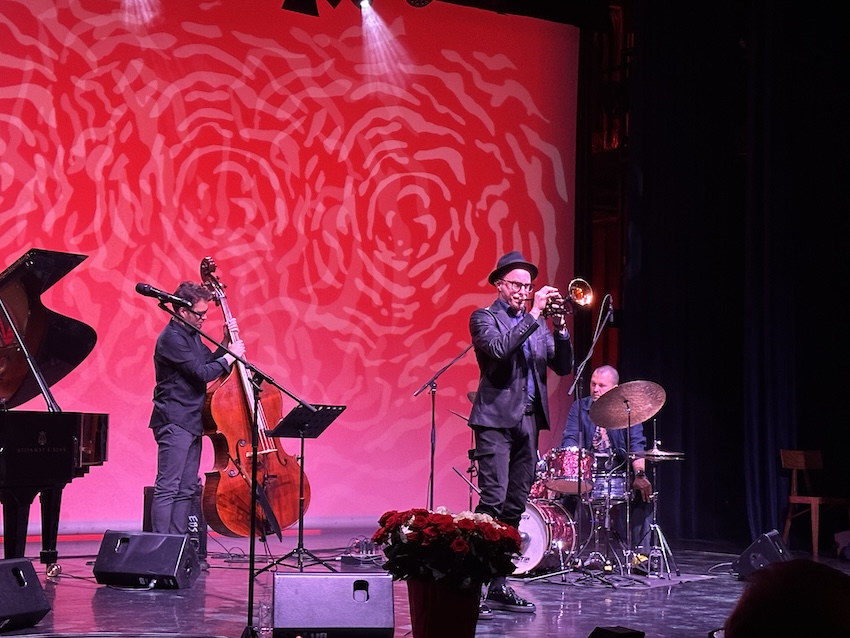
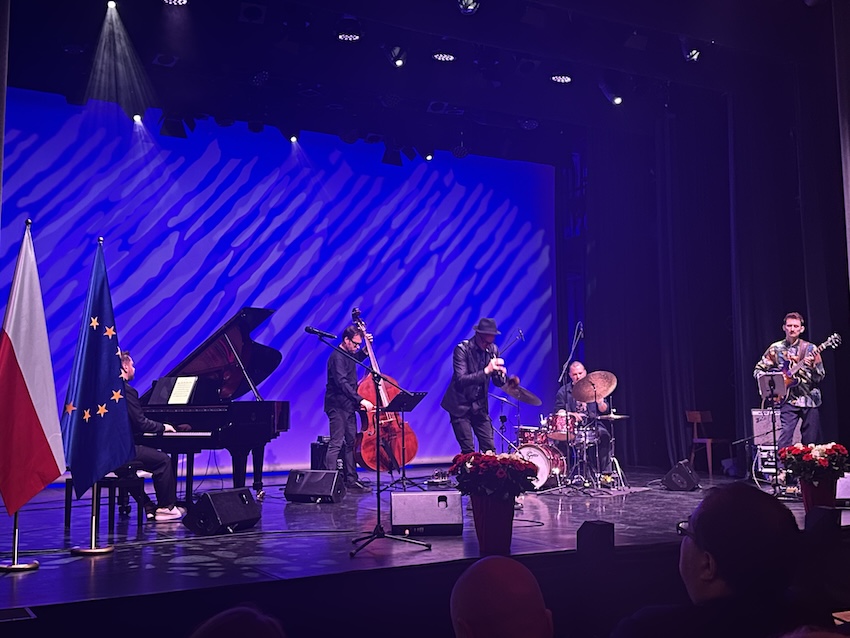
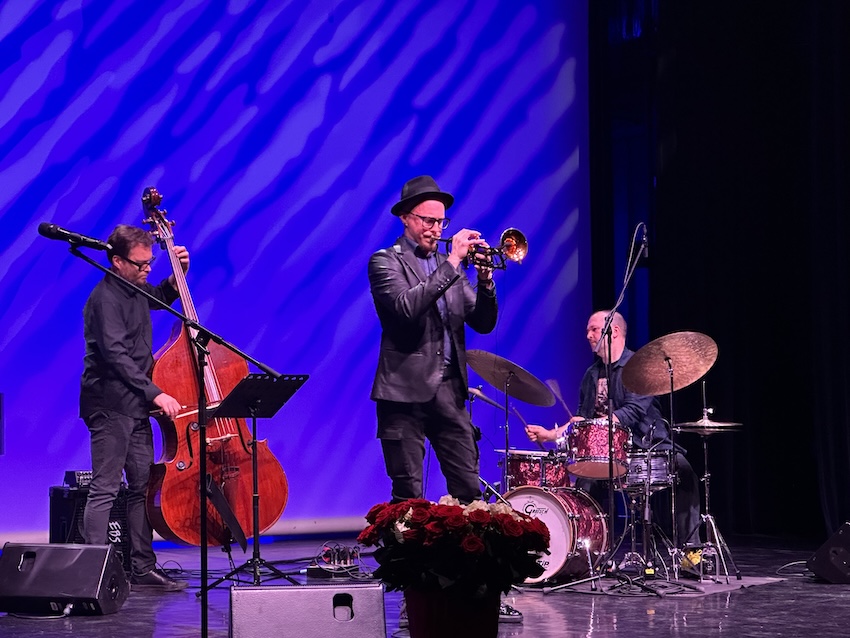
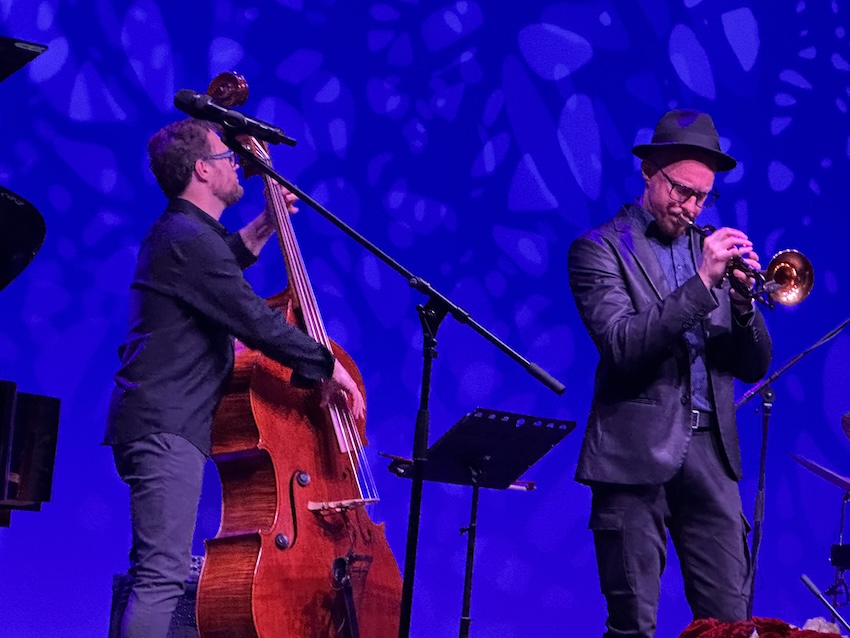
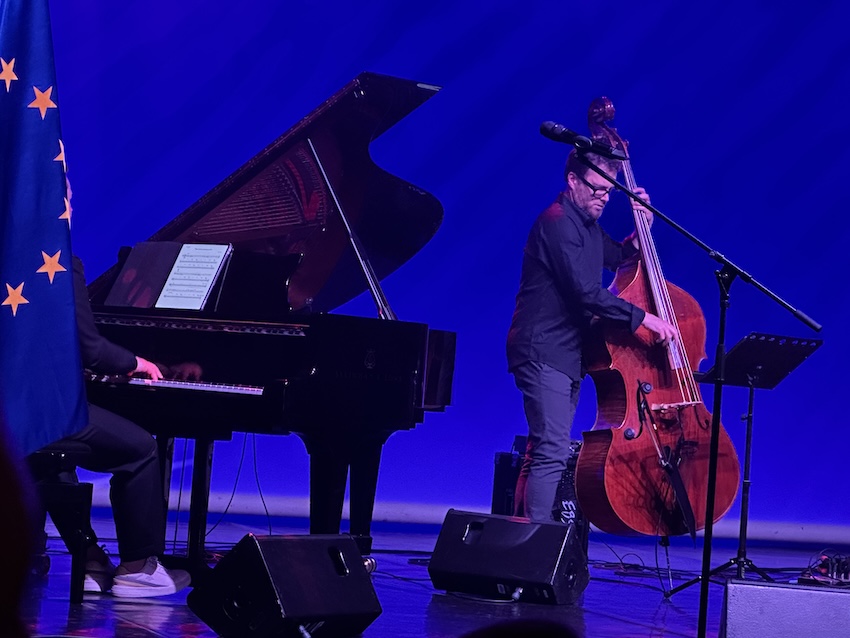
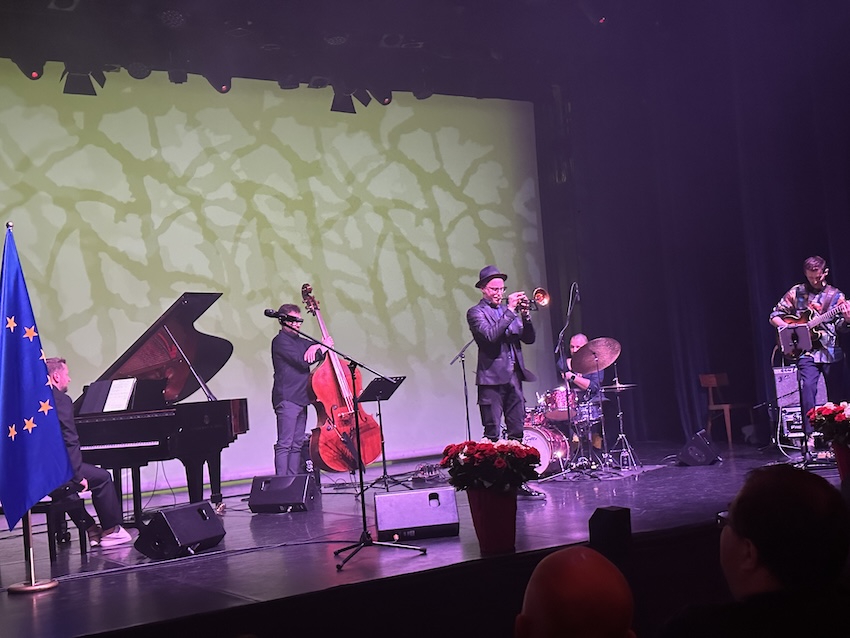
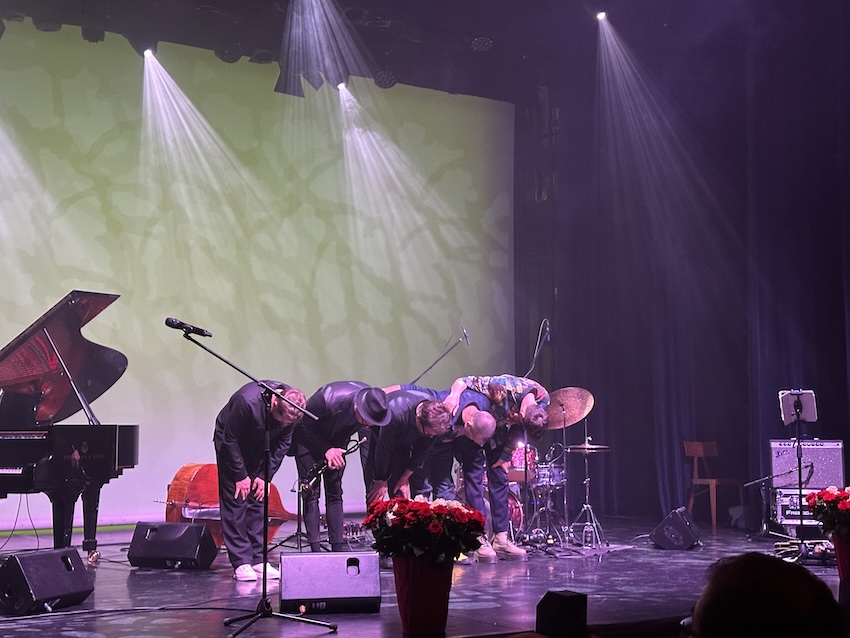

Met with enthusiastic applause, the concert was followed by a warm and convivial reception, featuring delicacies from the rich tradition of Polish gastronomy.
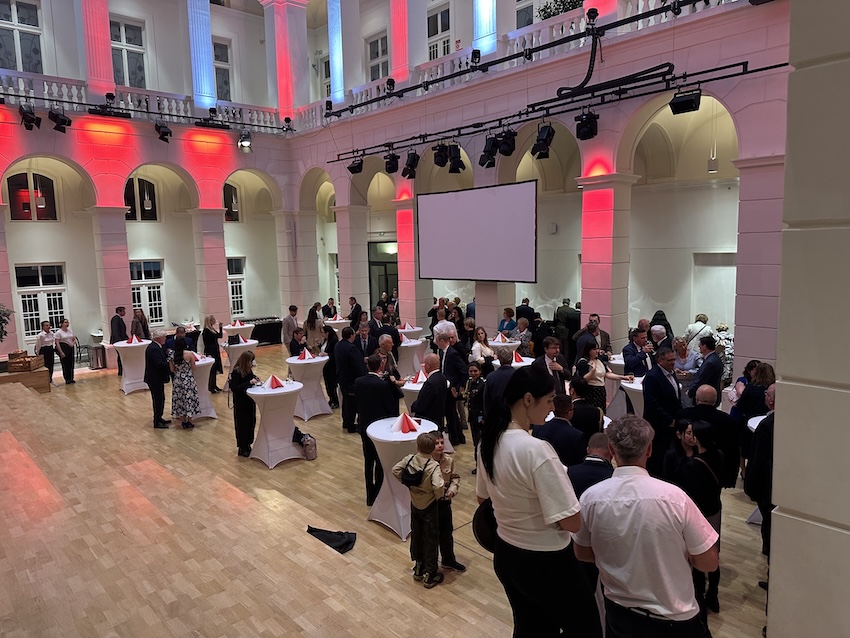
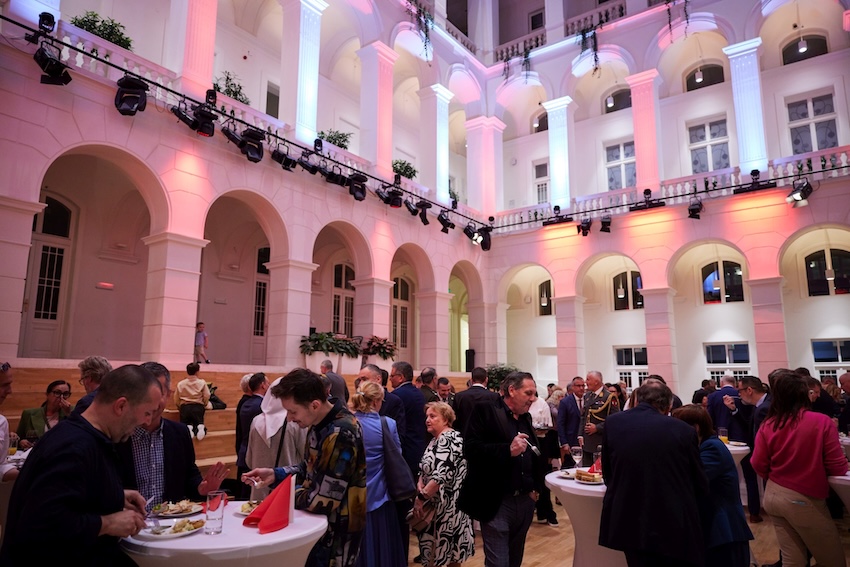
Source: Embassy of the Republic of Poland in Budapest
Photos by the Embassy of the Republic of Poland in Budapest, and DPA





